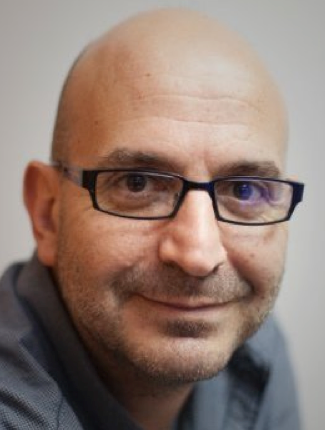People
Michael Georgy: In and out of the Libyan abyss
Friday 1 April 2011
 Michael Georgy (photo), one of Reuters’ correspondents covering the conflict in Libya, heard rifle catches click and thought he and photographer Chris Helgren were about to be killed.
Michael Georgy (photo), one of Reuters’ correspondents covering the conflict in Libya, heard rifle catches click and thought he and photographer Chris Helgren were about to be killed.
They had stopped at an abandoned farmyard. “Then we heard guns being locked and loaded. I was terrified. I looked at Chris for reassurance.” A pistol and an AK-47 assault rifle were pointed at him.
Georgy was expelled from Libya on Wednesday. He had been among a group of foreign journalists invited to report from Tripoli, albeit under severe government restrictions. Writing from the safety of neighbouring Tunisia, he told on Friday of his treatment at the hands of Libyan security forces.
“At one point, when I was hauled out of a vehicle at a deserted farmyard, I heard the rifle catches click and thought I was about to be killed,” he said.
Officials had told them publicly that they could travel wherever we wanted, to see Muammar Gaddafi’s side of the story. The reality was rather different.
“Chris and I, however, took them at their word and on March 5 we found a taxi to take us the 200 km east to the city of Misrata, where rebels said they had taken over.
“As we approached the outskirts, our trouble began. We were stopped at a checkpoint by a group of militiamen and soldiers.
“Hoping to relax them, I said I was Egyptian, a fellow Arab. Stupid move. Egyptians are now detested by Gaddafi loyalists, since the revolution in Cairo inspired Libyans to rebel.
“Then I said I had an American passport, hoping that might impress them. It didn’t. The official government document identifying us as journalists didn’t work either.”
The two Reuters men were made to drive back towards Tripoli under a series of escorts until they reached a police station on the outskirts. A smartly dressed army officer told Georgy: “’Michael you have nothing to worry about at all. Don't be scared.” It wasn't reassuring, Georgy said.
"Bad time to be a journalist in Libya," another soldier told him. Reporters were part of a foreign conspiracy against Libya, he said. “But then he made it clear that if they decided we were not journalists but spies, that would be worse.
“If you tell us the truth, it should be fine, God willing. But if we catch you lying, oh we will show no mercy. None.”
- « Previous
- Next »
- 487 of 567